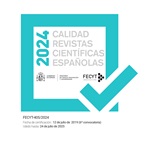Principios de protección del consumidor para una iniciativa europea en el ámbito de la resolución electrónica de diferencias (ODR) de consumo transfronterizas. (RI §410961)

Principles of consumer protection for an european initiative in the field of cross border electronic consumer redress (ODR). -
Fernando Esteban de la Rosa
Los sistemas electrónicos de mediación y arbitraje disponibles a través de Internet (ODR) se erigen en la actualidad en instrumentos de significativa importancia de cara a promover la confianza del consumidor en el comercio electrónico transfronterizo. No obstante, para que dichos instrumentos contribuyan de forma efectiva a propiciar la satisfacción del consumidor es preciso que su configuración y estructura responda a ciertos principios y reglas en que se traduce la protección del consumidor en la resolución extrajudicial de diferencias y que derivan del Derecho europeo. El estudio pasa revista al acervo europeo existente para esta finalidad y, ante su insuficiencia, explora cuál habría de ser la traducción en este ámbito de los principios que como soft law han sido ya establecidos. Teniendo en cuenta esta perspectiva, se propone la conveniencia de que los sistemas jurídicos distingan, a la hora de dar eficacia a una cláusula contractual de mediación o de arbitraje electrónica en contratos internacionales de consumo, en el hecho de que el concreto sistema de ODR responda a las exigencias relativas a la protección del consumidor. Este podría ser el sentido de una posible intervención del legislador europeo en el sector, para lo cual se muestra funcional la ampliación de las competencias de la Unión Europea que se ha producido en este ámbito tras la entrada en vigor del Tratado de Lisboa.
I. INTRODUCCIÓN: 1. La promoción de los sistemas de ODR y la protección del consumidor. 2. Algunos elementos de la fisonomía de los sistemas de ODR 3. La tecnología al servicio de la mediación y del arbitraje de consumo. II. EL CONTEXTO NORMATIVO EUROPEO PARA EL DESARROLLO DE SISTEMAS EN LÍNEA DE RESOLUCIÓN DE DIFERENCIAS DE CONSUMO: 1. La nueva competencia de la Unión Europea para el desarrollo de mecanismos alternativos de solución de litigios. 2. La intervención europea a través de soft law y la creación de las Redes de organismos de resolución extrajudicial de litigios. 3. La Directiva 2008/52 sobre mediación. 4. Respaldo europeo a los sistemas de ODR. 5. Proyección del Derecho europeo de protección del consumidor sobre la configuración de los sistemas de ODR. IV. PROBLEMÁTICA PARTICULAR DE LA MEDIACIÓN Y DEL ARBITRAJE EN LÍNEA: 1. Eficacia de las cláusulas de remisión a sistemas ODR de mediación; 2. El convenio arbitral electrónico de consumo; 3. Ejecución de decisiones procedentes de sistemas de ODR; V. CONCLUSIONES Y PROPUESTAS.
The electronic systems of mediation and arbitration (ODR) stand at present as instruments of significant importance in promoting consumer confidence in cross-border electronic commerce. However, for these instruments to contribute effectively to the promotion of customer satisfaction, their configuration and structure ought to respond to certain principles and rules resulting in consumer protection mechanisms in the judicial settlement of disputes. For this purpose, the study reviews the existing acquis communautaire and, given its insufficiency, explores what would be the translation into this field of principles already established as soft law. Bearing in mind this perspective, the article advocates for the desirability that legal systems guarantee, when giving effect to a clause providing for mediation or arbitration in international electronic consumer contracts, in particular the fact that the ODR system complies with the consumer protection requirements. This could be the queue for a possible intervention of the European legislator in this field, now more than ever showing the importance of the amplification of the Union’s competences after the entry into force of the Treaty of Lisbon.
I. INTRODUCTION: 1. The promotion of ODR schemes and consumer protection. 2. Some features of the ODR schemes. 3. Technology in the use of consumer mediation and arbitration. II. THE EUOROPEAN LEGISLATIVE CONTEXT FOR THE DEVELOPMENT OF CROSS-BORDER ODR SCHEMES FOR CONSUMER REDRESS. 1. The new EU legislative competence for the development of alternative systems for redress. 2. European soft law and the creation of networks for consumer redress. 3. The 2008/52/EC Directive on mediation. 4. European support to ODR schemes. 5. The impact of European consumer protection on the design of the ODR schemes. IV. PARTICULAR PROBLEMS OF ONLINE CONSUMER MEDIATION AND ARBITRATION. 1. Efficacy of mandatory ODR mediation clauses. 2. The electronic arbitration agreement; 3. The enforcement of decisions delivered by ODR schemes. V. CONCLUSIONS AND PROPOSALS.

 DIRECCIÓN / MANAGEMENT
DIRECCIÓN / MANAGEMENT